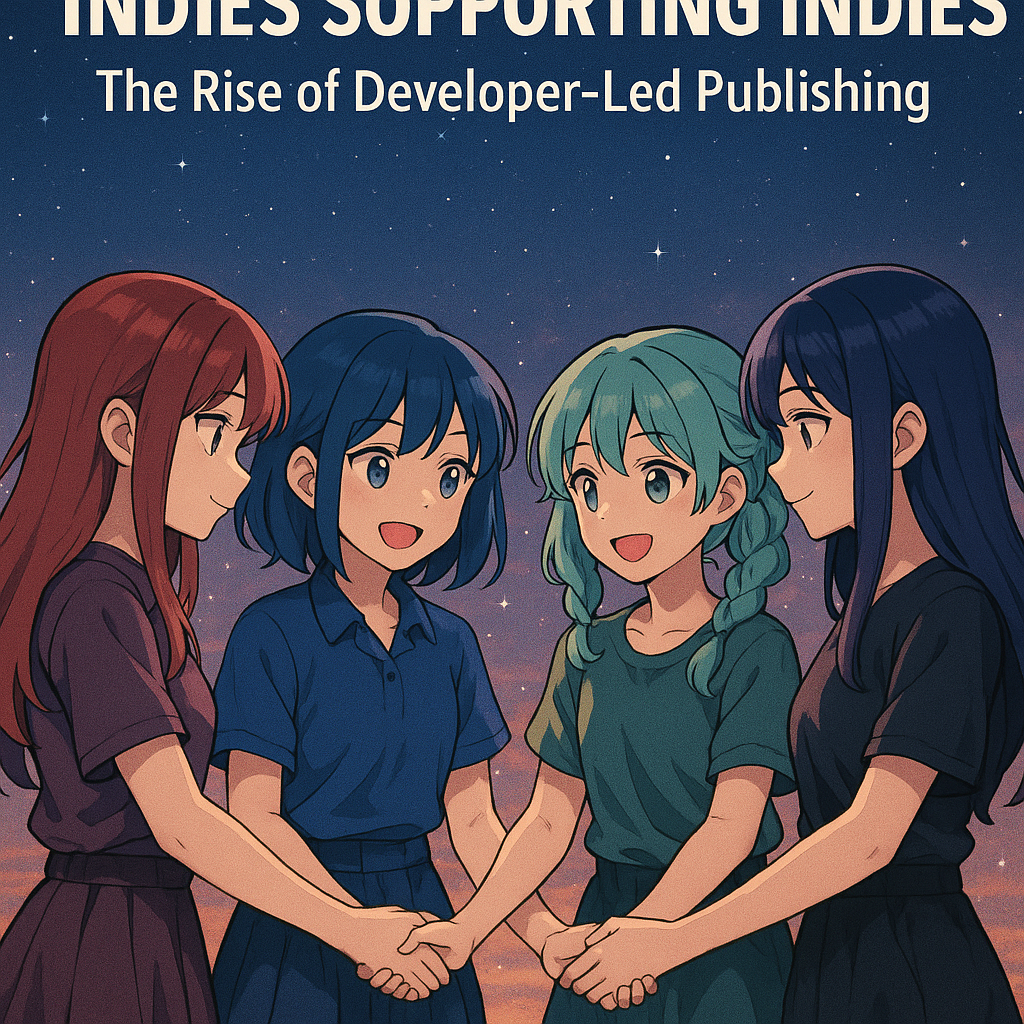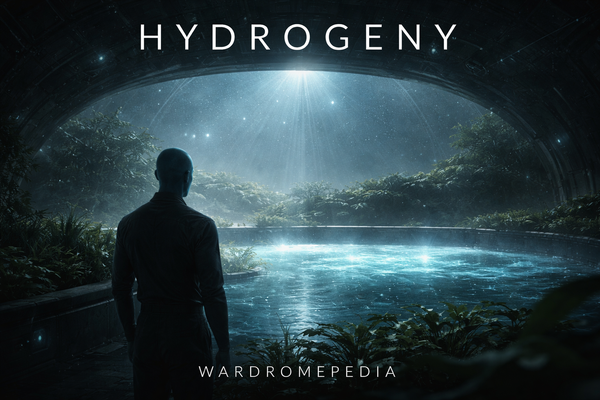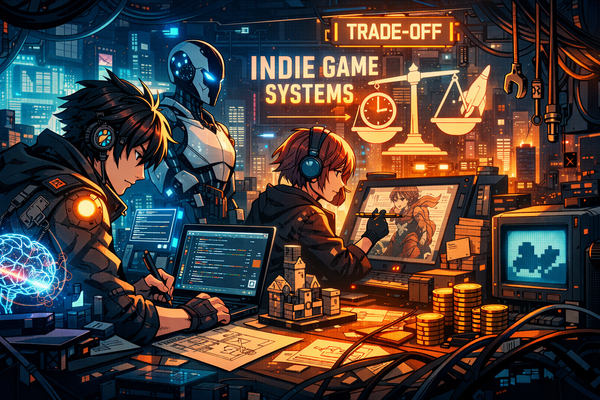Indies supporting indies: The rise of Developer-Led publishing
In the world of independent game development, a quiet revolution is stirring. Once upon a time, small studios braved a harsh landscape dominated by giant publishers—an realm where creative visions could be compromised or projects abruptly cast aside. But from those trials, a new path emerged. Today, a wave of developer-led publishing is sweeping the indie games scene, forged by creators who have walked the same difficult road and now extend a guiding hand to their fellow indies. They are writing a dreamy new chapter in the epic saga of game development, one where indies support indies in bringing unique visions to life.
Breaking free and forging new paths
This movement began as a response to the old ways. Take the tale of Double Fine Productions: after a tumultuous experience with traditional publishers (one that nearly saw Brütal Legend lost in limbo), studio head Tim Schafer and his team learned how fragile creative projects could be under corporate control (Indie game publishers are the new indie rock labels | The Verge). Determined to ensure other developers “didn’t have to go through the same stressful publisher-developer relationship”, Double Fine launched its own indie label, Double Fine Presents, around 2014. As Double Fine’s Greg Rice put it, “We wanted to take the good things that we experienced with publishers and make sure we weren’t doing the bad things”. In practice, this meant giving indie teams support with funding, marketing, and production—minus the stifling oversight.
Double Fine was not alone. A few years earlier, a scrappy startup called Devolver Digital had already proven that an indie-friendly publisher could thrive. Dubbed “a sort of punk-rock label for games”, Devolver made a name helping quirky titles like Hotline Miami and Downwell succeed while refusing to demand a huge cut or ownership of the IP. The philosophy was simple: empower the creators. “I think every artist would like some help,” mused Devolver co-founder Mike Wilson, “if that help doesn’t come with all of these terrible controls.” This ethos resonated with developers who craved support but feared losing their independence. Soon other boutique publishers emerged with a similar creator-centric focus. Double Fine Presents was followed by Annapurna Interactive, born from a film company with a passion for artsy games, and even Skybound (of The Walking Dead fame) launched an indie label. All shared a common goal: to let developers focus on making games, without the usual worries about business and bureaucracy.
Creators helping creators
What sets these developer-led publishers apart is the deeply human, collaborative approach they take. They are creators first and foremost, and they treat the studios they partner with as creative equals. Annapurna Interactive, for example, built its reputation on nurturing unconventional projects. When Ken Wong (designer of Monument Valley) started his new studio, he was wary of signing on with any publisher. Annapurna changed his mind by aligning with his creative values. “It’s our game, and they’re helping us along,” Wong said after seeing that Annapurna wouldn’t impose control over his project. With Annapurna’s help handling the unglamorous tasks—negotiating store deals, organizing events, even assisting with trailers—Wong’s team could pour their heart into crafting the award-winning Florence. That sense of “shared vision” built on trust allowed an intimate, narrative-driven game to blossom with the backing of a like-minded partner.
Other indie developers have taken a similar “creators for creators” route by founding their own labels. The husband-and-wife team behind Finji, for instance, evolved from simply making their own games (like the minimalist hit Canabalt) into helping other indies publish theirs. Initially, Finji’s Adam and Rebekah Saltsman just lent a hand to friends—getting their games onto Steam or the App Store—because they already had a company infrastructure set up (Finji's goal: Be less scrappy | GamesIndustry.biz). One success led to another, and before long Finji was officially both a developer and a publisher, championing titles such as Night in the Woods and Chicory. Rebekah describes Finji’s role not as a traditional publisher overlord, but as part of the development team. “We are tech mentorship or design mentorship... We kind of take over the biz dev part of the team, but we leave all the decision making in the hands of our teams,” she explains. In other words, Finji provides guidance on technical and business challenges while the creators remain firmly in control of their art. It’s a relationship built on mutual respect—more akin to a seasoned coach helping an athlete refine their performance, rather than a boss issuing orders.
We see a similar spirit with Yacht Club Games, the indie studio behind Shovel Knight. After their flagship retro platformer became a breakout success, Yacht Club decided to pay it forward and publish games from smaller studios. They understood first-hand how challenging marketing, QA, and console certification can be for a tiny team. “Our publishing philosophy... a lot of it is sharing knowledge,” says COO James Chan. “[Partner developers] have access to our creative; we review all the work, play the game... We send all of that feedback. We try to provide that perspective.” (Yacht Club Games to renew focus on third-party publishing - GameDaily.biz | We Make Games Our Business) By acting as a mentor and offering hard-earned know-how, Yacht Club helps newer indie devs avoid common pitfalls. Crucially, this aid comes with no creative strings attached. It’s about seasoned developers supporting emerging talent, so that promising games like Cyber Shadow (which Yacht Club published) can shine as brightly as possible.
The Indie community spirit
Beyond the practical support with funding or marketing, developer-led publishing is fueled by a sense of community and camaraderie. Unlike the competitive rivalries of the old industry, the indie game scene thrives on collaboration and shared passion. “Indies today are much more collaborative than competitive… They all want to help each other, and they’re cheering for each other,” observes Mike Wilson of Devolver Digital, reflecting on how dramatically the culture has changed since he first started in games. Many of today’s indie publishers actively foster this community spirit. Double Fine, for example, co-organizes Day of the Devs, a free showcase where indie creators can show their projects to the public and to each other. Events like these are less about sales and more about celebrating creativity together—established studios lifting up newcomers, and peers sharing hard-won lessons. Knowledge flows freely on social media and developer forums as well, with veterans openly discussing contract tips or marketing strategies so that the next generation of indies is better equipped.
All of this represents a profound shift: instead of each studio fending for itself, a fellowship of indie developers has formed. When a small team partners with an indie-run publisher, they know they’re dealing with folks who have been in their shoes and speak their language. There’s often a personal rapport and a shared enthusiasm that wouldn’t exist in a big corporate deal. Developer-publishers talk about picking projects that inspire them, not just those projected to hit a sales target. And when they commit to a game, they tend to stick with it through thick and thin. “They understand the industry but also the particular needs of artists,” game artist David OReilly said of his experience working with the Double Fine Presents team. “They took the pressure off everything I am bad at… so I could focus on development. This is key.” (Double Fine's indie publishing biz aims to grow and help devs 'rise above the noise') OReilly’s experimental game Everything flourished under such an arrangement, winning awards and delighting players, all while he retained full creative freedom. Stories like this spread hope throughout the indie community: they prove that with the right support, small studios can achieve their grandest ambitions without sacrificing their independence or identity.
Indie creators forging ahead on their own terms, backed by a like-minded community. This collaborative ethos has even caught the attention of industry veterans and new investors, further validating the indies supporting indies model. In recent years, we’ve seen seasoned developers and game enthusiasts launch their own labels dedicated to nurturing independent talent. For instance, a group of former Mojang (Minecraft) and Coffee Stain (Goat Simulator) developers recently formed a new publishing venture called Three Friends. Their entire philosophy is summed up as “guidance, not control,” emphasizing early, hands-on support and long-term partnership rather than brute-force funding or creative domination (Mojang and Coffee Stain veterans form new publishing label Three Friends). “We don’t believe in rushing a game to market or throwing money at problems,” the founders declared, stressing that patience and trust are key to turning strong ideas into standout games. It’s a modern twist on the old patronage system—except here the patrons are fellow developers who understand that making a great game is an arduous journey of a thousand small decisions. And they’re there to advise on those decisions side by side with the creators.
A new dawn for indie game development
From North America to Europe to Asia, this rise of developer-led publishing marks a new dawn for indie games. It’s a hopeful, human-centric vision of how games can be made: seasoned creators becoming mentors and partners, studios banding together in clusters of creativity, and the success of one becoming the seed that helps others grow. The indie renaissance of the past decade has shown that a brilliant game can come from anywhere—a dorm room, a small garage studio, or an offbeat corner of the world. Now, with indies supporting indies, those brilliant games have a better chance to find their audience. The roadblocks are fewer; the journey is less lonely.
As the sun rises on this collaborative era, the narrative of an indie developer might go something like this: You set out with a dream and work hard on a prototype. Along the way, you meet an ally—perhaps a fellow developer who’s traveled this road before—who believes in your vision. They offer you not a corporate contract, but a helping hand and a promise: “Your game is still your own, and we’re just here to help you share it with the world.” With their guidance you avoid the hidden pitfalls and push your creation further than you could alone. And when at last your game sails out to meet its players, that ally cheers the loudest, because your success is their success too.
This is the new epic unfolding in indie games today. The rise of developer-led publishing is more than a business trend; it’s a story of community, creativity, and camaraderie. It’s about artists lifting each other up so that more diverse voices can be heard in the medium we love. In this unfolding saga, every developer—big or small—can dare to dream, knowing that a supportive fellowship of indies stands ready to help carry those dreams to the finish line. And that might be the most inspiring game story of all.




